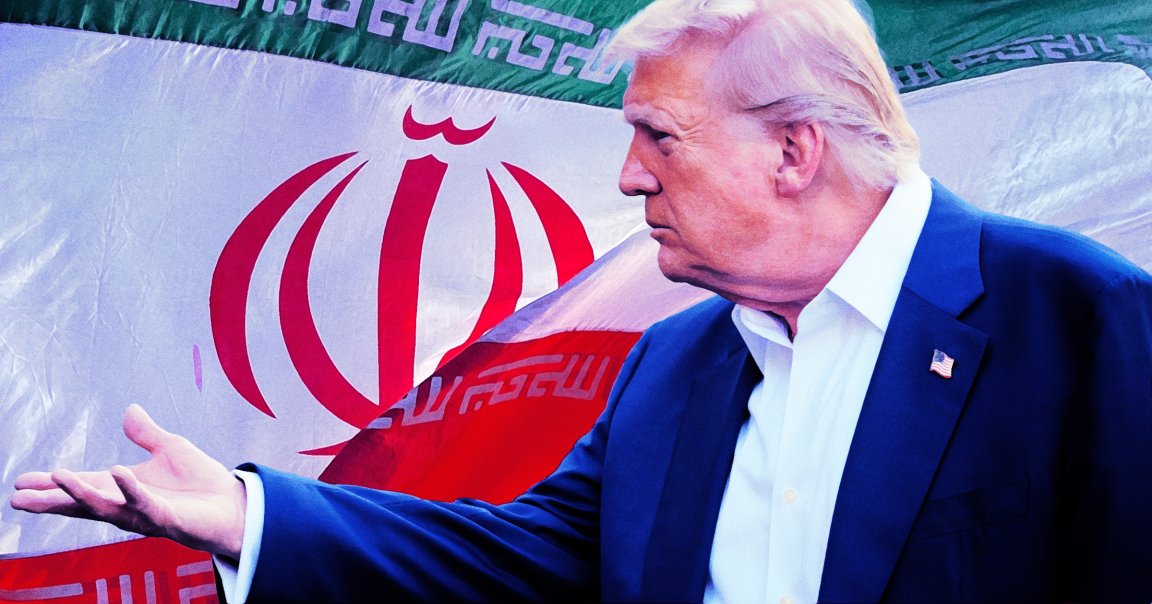
As tensions bristle in the Middle East following the Trump administration’s air strikes on Iran, hackers allegedly backed by the Iranian government are flashing their wild card: 100 gigabytes’ worth of emails scraped from the president’s 2024 election campaign.
As Reuters first reported, the hackers claim to have nabbed emails from accounts belonging to top Trump aides including White House chief of staff Susie Wiles, millionaire advisor Roger Stone, attorney Lindsey Halligan, and even Trump’s alleged affair partner Stormy Daniels.
Calling themselves Robert — yes, really— the hacker representing the group hinted at making the email bundle open for purchase, but didn’t otherwise leak any details.
Given past scandals involving Trumpworld’s debaucherous cast of characters, though, one can only imagine the mountains of dirt that could be hiding in those emails.
“This so-called cyber ‘attack’ is nothing more than digital propaganda, and the targets are no coincidence,” the US Cybersecurity and Infrastructure Security Agency (CISA) nagged on X-formerly-Twitter. “This is a calculated smear campaign meant to damage President Trump and discredit honorable public servants who serve our country with distinction.”
Robert had previously surfaced during the 2024 US presidential election, when Microsoft logged a similar breach of Trump aide emails. Then, too, Western journalists were Robert’s first point of contact, along with staffers for Joe Biden’s short-lived re-election push.
The hacker group’s latest threat comes weeks after Israel unleashed a missile barrage onto Iranian military and civilian infrastructure, dragging the region into yet another round of long-range tit-for-tat strikes. Though Trump initially opposed Israel’s attacks, he nonetheless led the US into the conflict by sending a squadron of B-2 bombers from Missouri to target Iranian nuclear research sites.
So far, 935 Iranian citizens have been killed in the attacks, among them 38 children and 132 women, according to Reuters. Israel’s death toll from Iran’s attacks, for perspective, stands at 28.
Though war hawks in the US and Israel have been warning of an “imminent threat” posed by Iran’s nuclear weapons program for well over 30 years, the broader Western intelligence community has tended to disagree. (Israel, for what it’s worth, has an estimated 90 nuclear warheads, which it illegally hides in violation of international arms control laws.)
Neutral analysts have noted that, even if Iran had a nuke, it would probably just gather dust as a military deterrent against western political meddling in the country’s affairs — similar to North Korea, which US intelligence agencies say is “unlikely” to use its arsenal offensively.
Strategically, Iranian and Iran-linked cyberattacks function in a similar way. Though the US spends more money on its military than the next nine countries combined, its reliance on decentralized business chains has emerged as a weak point in recent years.
Right after the US strikes on Iranian soil, Tehran-linked hackers went to work targeting US banks, defense contracting firms, and oil monopolies operating in the region — key players undergirding the decades-long conflict. Those attacks haven’t had much impact so far, but political pressure to end the conflict is mounting as US business and military leaders, not to mention voters, take notice.
Given the tide of scandals Trump has weathered in recent years, a dossier on his latest messy secrets might not move the needle as much as a nuke — though it could be a powerful testament to Iran’s hacking talent pool.
More on Iran: As War Descends on Iran, People Have Discovered Some Wild Old Posts on Ayatollah Khamenei’s Twitter Account